Have you ever found yourself wondering if you could pay less for your airline fare? You're not alone! Many travelers are often unaware that there is a process for inquiring about fare adjustments after booking. If you're curious about how to potentially save some cash on your next flight, keep reading for tips and insights into making a successful airline fare adjustment inquiry!
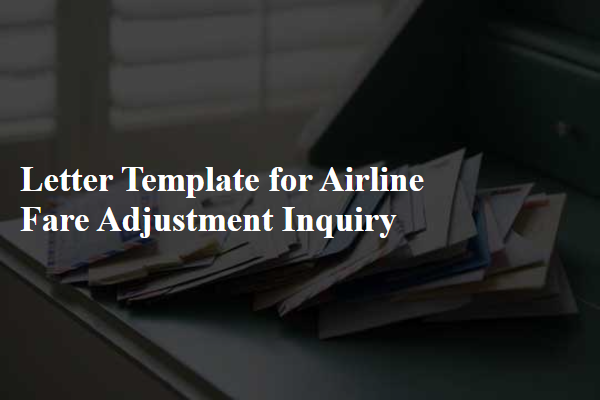
Subject line optimization
Subject lines for airline fare adjustment inquiries should be clear, concise, and informative. Examples include "Request for Fare Adjustment on Booking Reference [XYZ123]" or "Inquiry About Recent Fare Changes for Flight [Flight Number]." Include specific details such as your booking reference number, flight date, and any notable changes in fare pricing. Highlighting urgency or importance can also enhance the subject line, such as "Time-Sensitive Fare Adjustment Request for Upcoming Flight.
Formal greeting and introduction
Airline fare adjustments often play a crucial role in travelers' budgeting, with variations in pricing occurring frequently based on demand and scheduling. Inquiring about fare adjustments involves a detailed understanding of factors such as seasonal pricing shifts, promotional offers, and competition among airlines, especially in popular travel periods like summer vacations or holiday seasons. Airlines may also have different policies concerning fare adjustments, impacting the ability to request changes. Many travelers experience the need for adjustments due to unexpected events, such as flight cancellations or changes in itineraries, which can lead to significant financial implications. Knowing specific terms and conditions of each airline, including deadlines for fare adjustments and potential fees, can aid tremendously in making informed inquiries.
Detailed itinerary and booking information
Airline fare adjustments can significantly impact travel plans and budgets for passengers. An itinerary typically includes essential information such as flight numbers (e.g., AA123), departure and arrival dates (e.g., October 10, 2023), and destination airports (e.g., John F. Kennedy International Airport, NYC). Booking details comprise the passenger's name, ticket reference number (e.g., 123456789), and fare class (e.g., Economy) which affects eligibility for adjustments. Fare changes may also relate to travel restrictions, promotional offers, or changes in itinerary that can alter costs. Passengers should provide any receipt information, such as payment confirmation numbers, to support their inquiry and ensure a thorough review by the airline's customer service team.
Clear request for fare adjustment explanation
Travelers often face situations where fare discrepancies occur with airlines, prompting inquiries for fare adjustments. Specifically, when seeking clarification on fare changes, it is essential to provide details such as the flight number, date of travel, and the original fare amount. Airlines like Delta Air Lines or American Airlines may apply different pricing structures based on demand, time of booking, and special promotions. Providing a clear request for fare explanation can also assist in understanding factors like fare classes, additional charges, and the airline's refund policy. Relevant terms like flexible fares or non-refundable tickets can optimize communication, helping customers receive accurate and timely responses.
Contact information and closing statement
Airline fare adjustments can result from various factors such as schedule changes, fare discrepancies, or promotions. Customer service representatives typically request details about the original booking, including the reservation code and ticket number, to process the inquiry efficiently. Additionally, providing personal contact information, such as an email address and phone number, facilitates prompt communication from the airline regarding the fare adjustment status. A closing statement may include a polite thank you for the assistance and anticipation of a swift resolution to the inquiry.

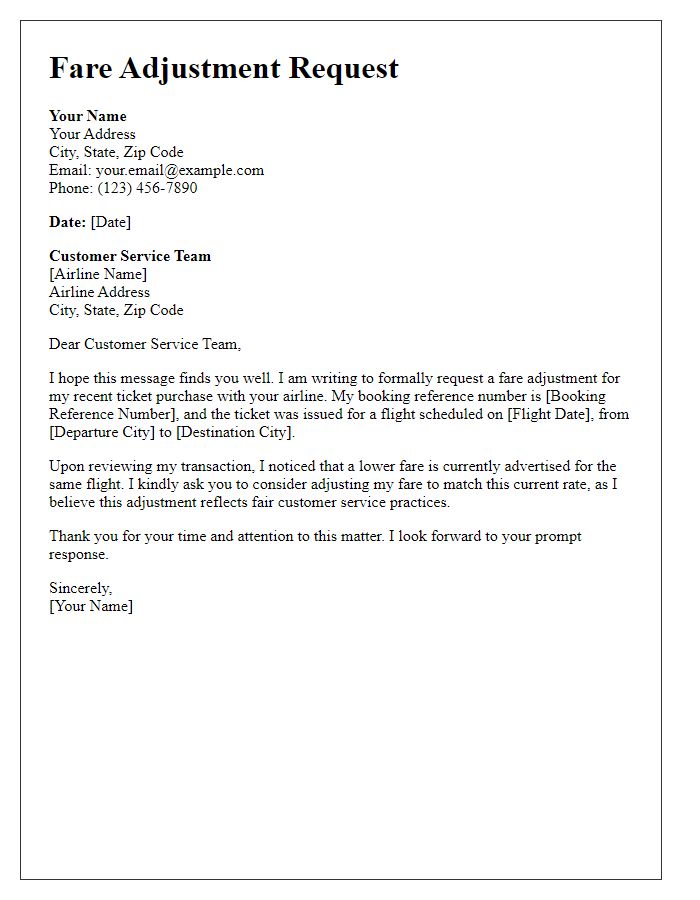
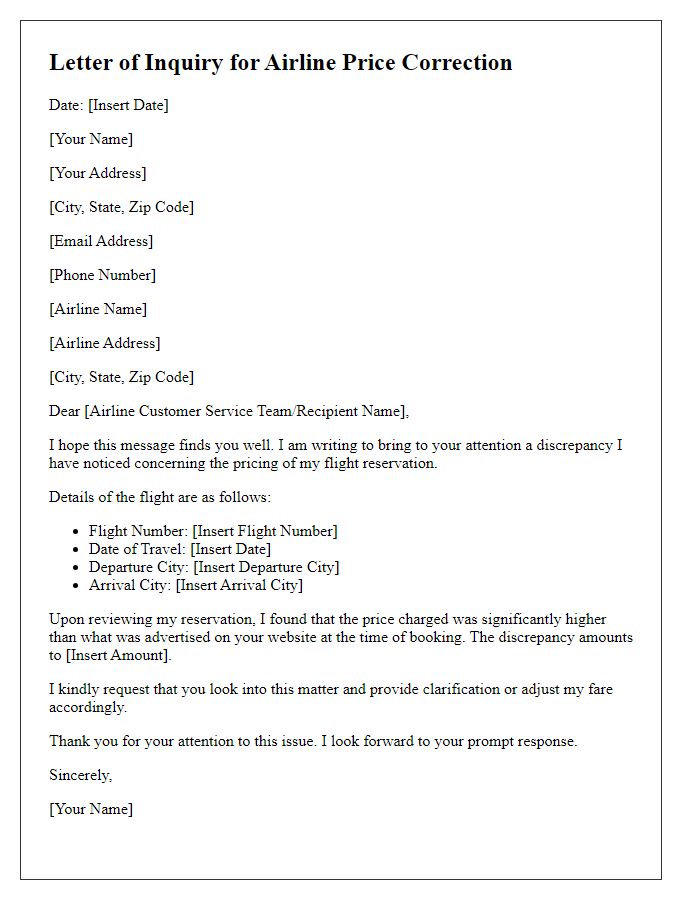
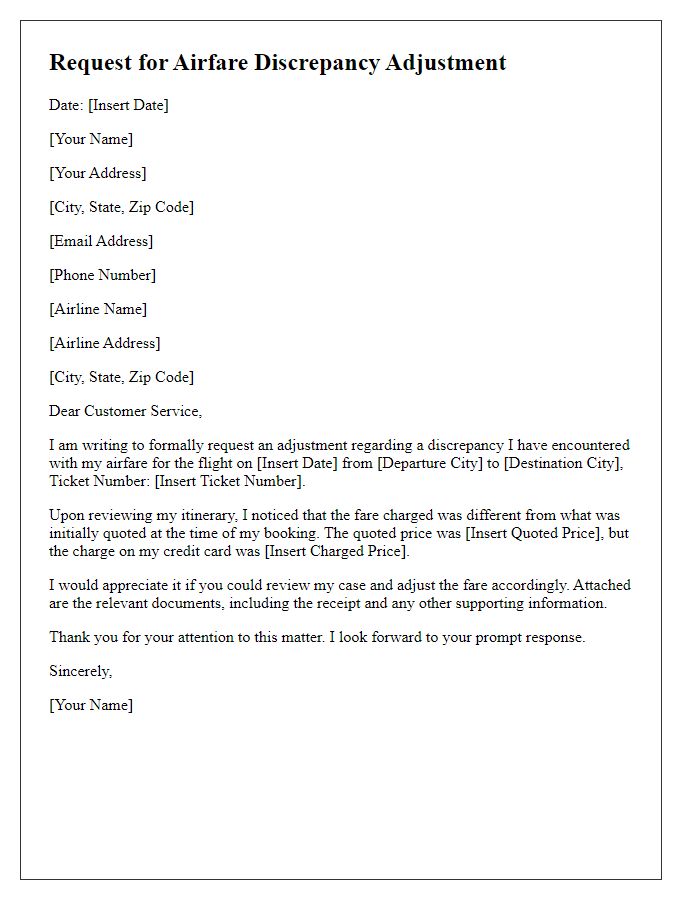
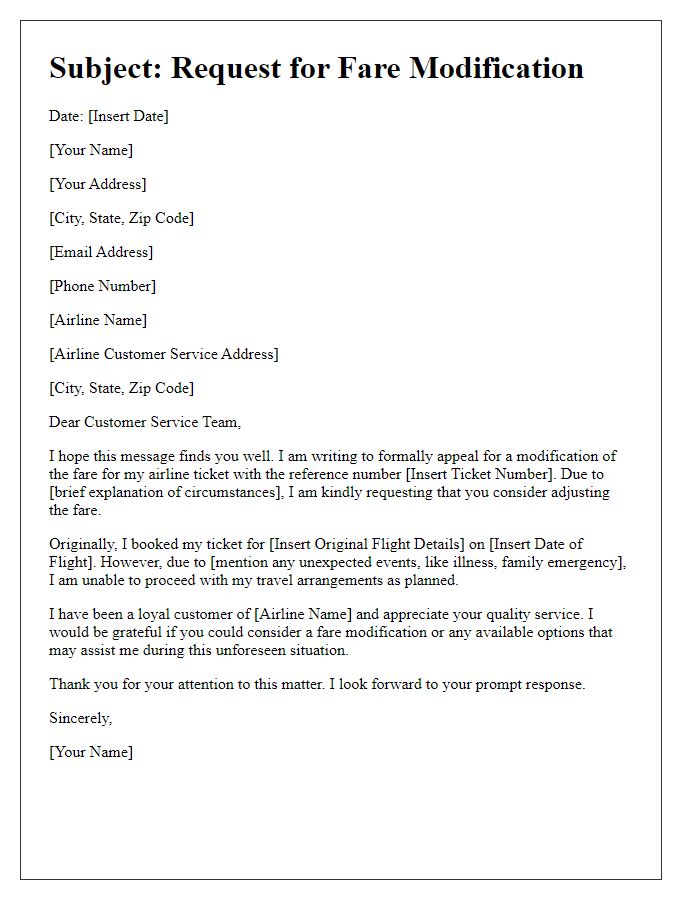
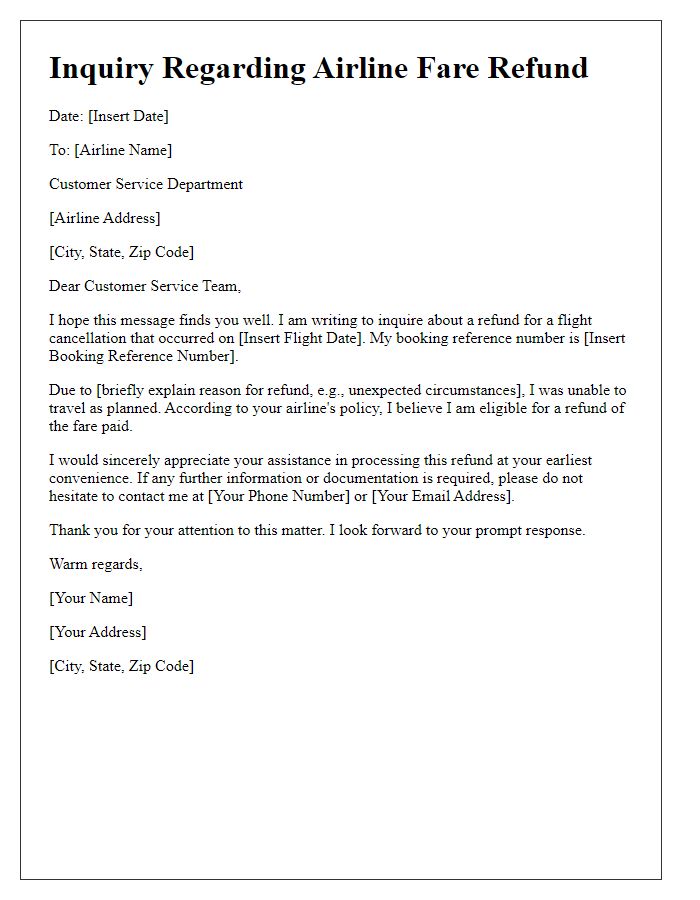
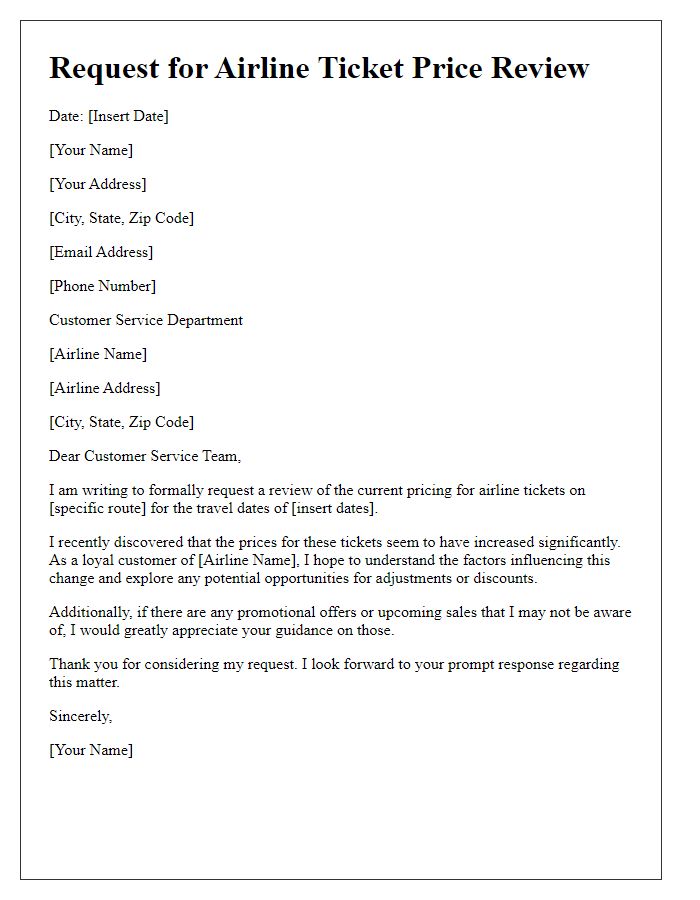
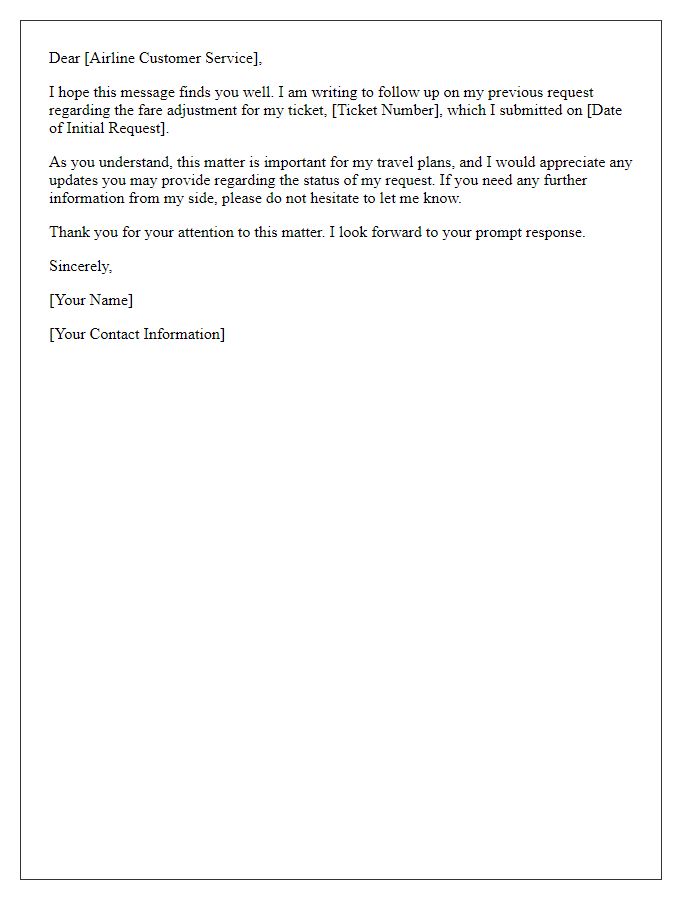
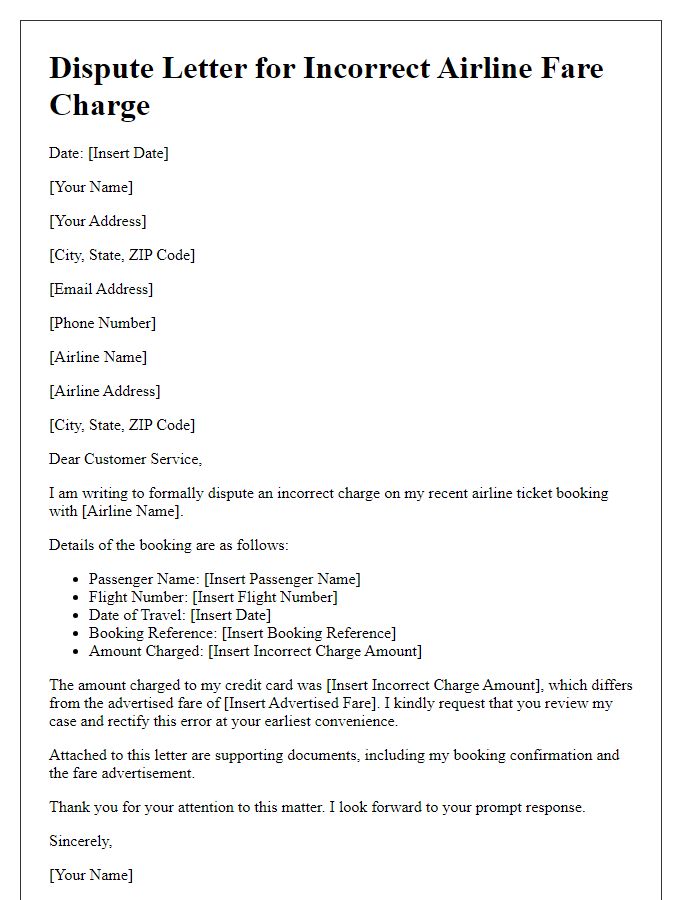
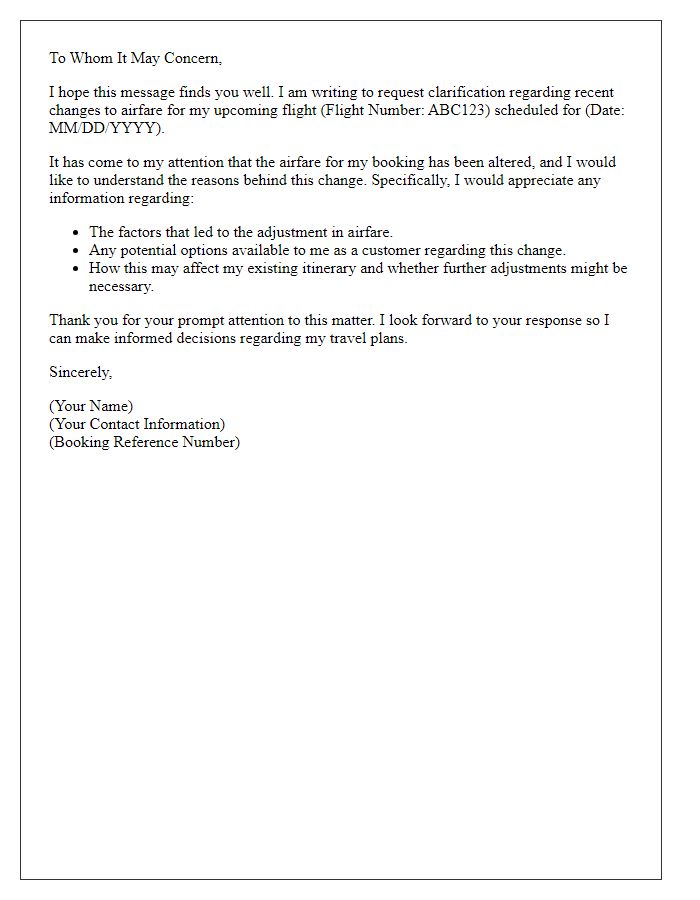
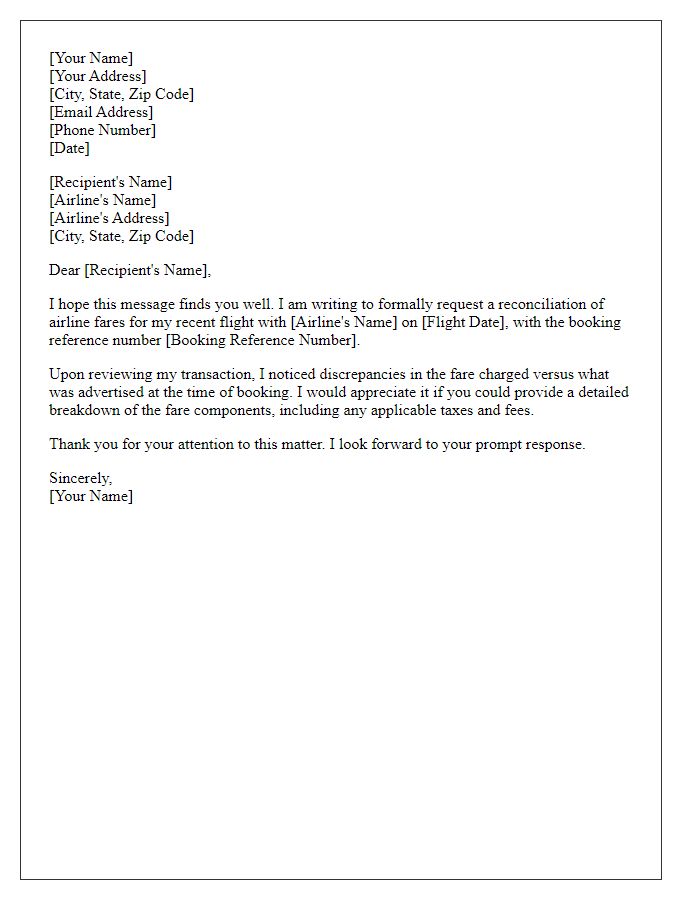


Comments